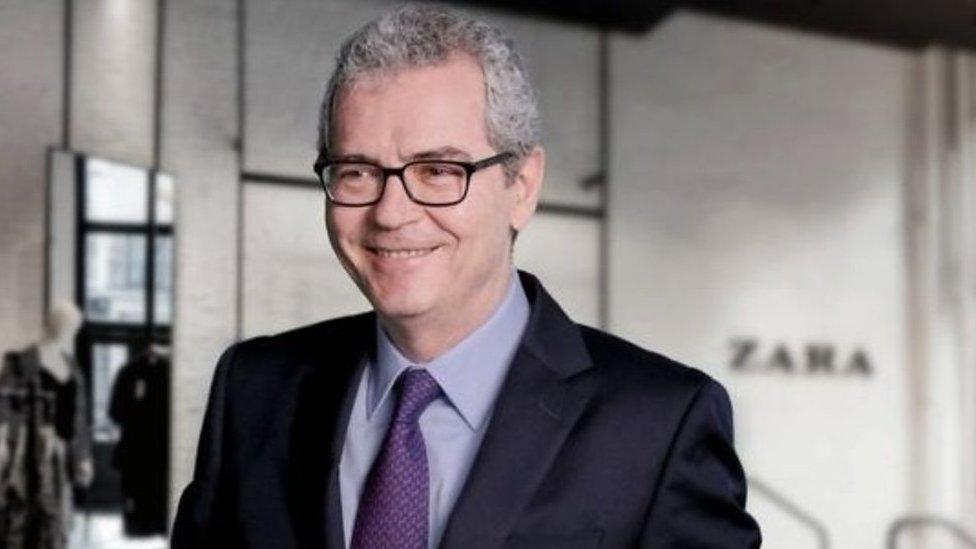Grace Beverley: The 22-year-old taking on the gym wear world
- Published
Grace Beverley's tips on avoiding fast fashion
One of the biggest fashion trends in the UK is gym wear - with the market set to be worth £6.7bn, external over the next five years.
Unsurprisingly, massive multinational brands compete hard for a piece of the action.
But at the other end of the power spectrum is 22-year-old Grace Beverley.
The Oxford Uni graduate has found a way of creating a niche in what is already an extremely crowded market.
Back in 2017, when she was still a student, she started B_ND - a company making vegan-friendly resistance bands. She set it up with money she'd made from selling her own workout plans and partnering with brands as an Instagram influencer.
"I've always been interested in finding gaps in the market and opportunities in items that don't exist," she tells Radio 1 Newsbeat.
"I had been using resistance bands and there were either really expensive good ones or really cheap, rubbery and plastic ones [on the market].
"So I looked into manufacturing to see how we could produce an affordable product, while still being ethical and we ended up making resistance bands and vegan barbell pads."
Allow Instagram content?
This article contains content provided by Instagram. We ask for your permission before anything is loaded, as they may be using cookies and other technologies. You may want to read Meta’s Instagram cookie policy, external and privacy policy, external before accepting. To view this content choose ‘accept and continue’.
Last month she won Natwest's young entrepreneur of the year award, in part due to the mark she's made on the world of sustainable fashion.
But she has had criticism levelled at her in the past - over her private school background and whether she had help setting up her businesses.
"I don't believe it's for me to sit here and be like, 'No, I'm not privileged'," she says.
"But I've done this myself - the businesses have been started from scratch by myself.
"That doesn't mean I am not incredibly privileged and fortunate in many other ways, like in terms of my education."
In May she set up activewear brand TALA - where items including sports bras and gym leggings are made from 92% reused materials, including plastic bottles and factory offcuts.
Her focus in business has always been on sustainability and creating affordable gym products that don't fall under the 'fast fashion' label - because they are eco-friendly. The hard bit is competing with rivals like Gymshark and Nike in terms of style and price.
"It's taken a lot of work and a lot of sacrifices on our part - we don't have anywhere near the profit margins of those brands," says Grace.
"We had to make it at a price point to be able to offer people a sustainable alternative.
"It's all well and good shouting at people saying you need to be sustainable, but very few people can afford a £100 pair of leggings."
Allow Instagram content?
This article contains content provided by Instagram. We ask for your permission before anything is loaded, as they may be using cookies and other technologies. You may want to read Meta’s Instagram cookie policy, external and privacy policy, external before accepting. To view this content choose ‘accept and continue’.
Grace says they had to settle at making the clothes 92% recycled as making clothes totally recycled would have out-priced their young customer base.
"For sustainable brands to be able to make their mark - we need to show there is that demand and people are choosing them over fast fashion equivalents."
When TALA launched in May this year, her first set of clothes sold out in 20 minutes, with a new collection of over 20,000 units selling out online last week.
She's aware of her young fan base and says one of her biggest achievements so far is "matching those bigger fast fashion brands by making prices under £35-40."
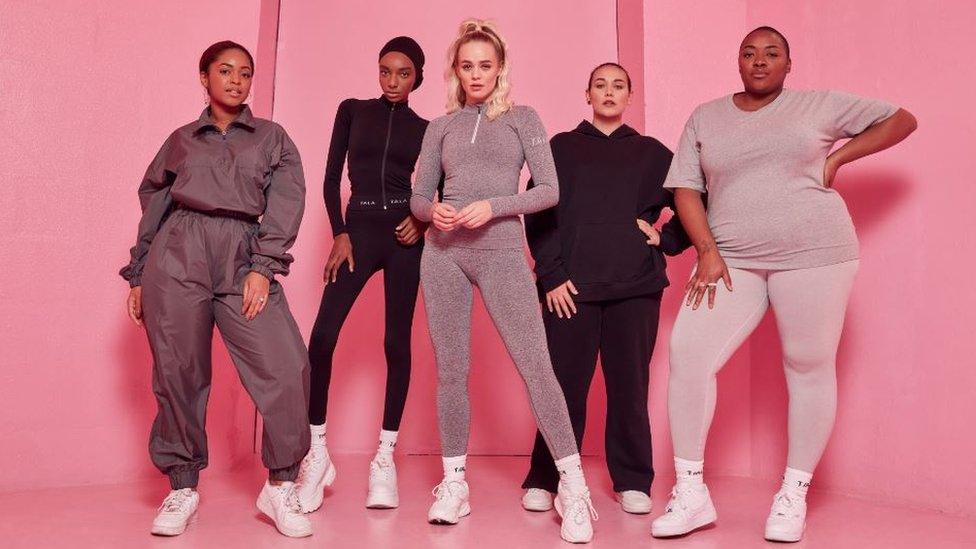
TALA campaigns feature women of all sizes
One of the stand out commitments of her brand has been showing that women of all sizes can feel comfortable in gym clothes - her clothes cater for a size 4-20 and also have options for taller women too.
Body diversity in gym wear has also been a hot topic in 2019, after Nike was criticised, external for putting plus-size models in one of their London stores as it was said to encourage people to be unhealthy.
"One of the most shocking things since launching has been the reception we've had on inclusivity - it's kind of sad how happy people have been because it means it's abnormal to see people of all shapes, sizes and races in our campaigns.
"It shows how under-represented some people feel - you should be able to go on a website and be able to imagine what something looks like on you."
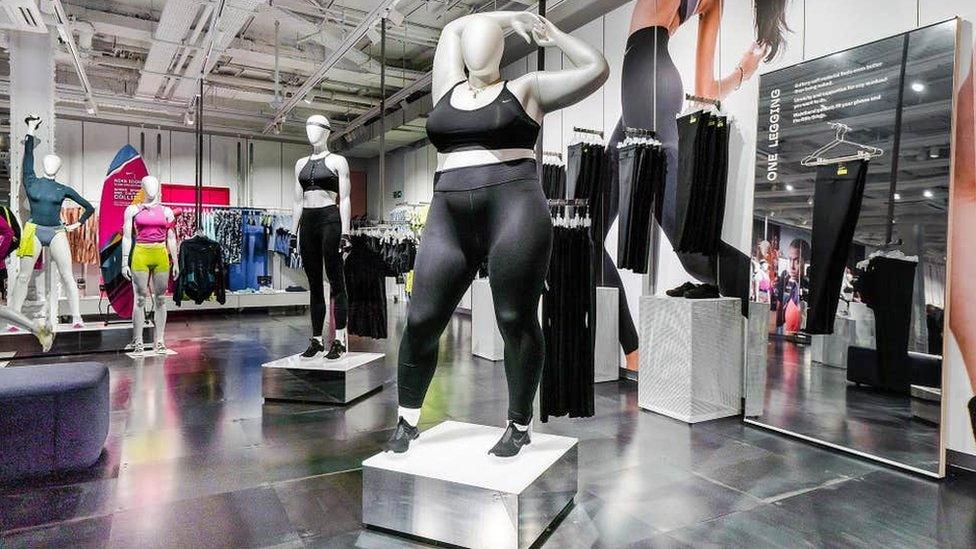
Nike faced a backlash for including plus-size models in their London store
Grace says they don't retouch photos as she wants people to see what clothes will actually look like on them. And of course, body image can be affected by your mental health.
In the past, Grace has spoken about her bad days and the stress she suffers from working so hard.
"My relaxing time would be working in front of the TV and I also know that it's a huge luxury for me to be able to say, 'Look, only work working hours or give yourself weekends'. At uni, I wouldn't have been able to do that and still have got my degree and run my business."
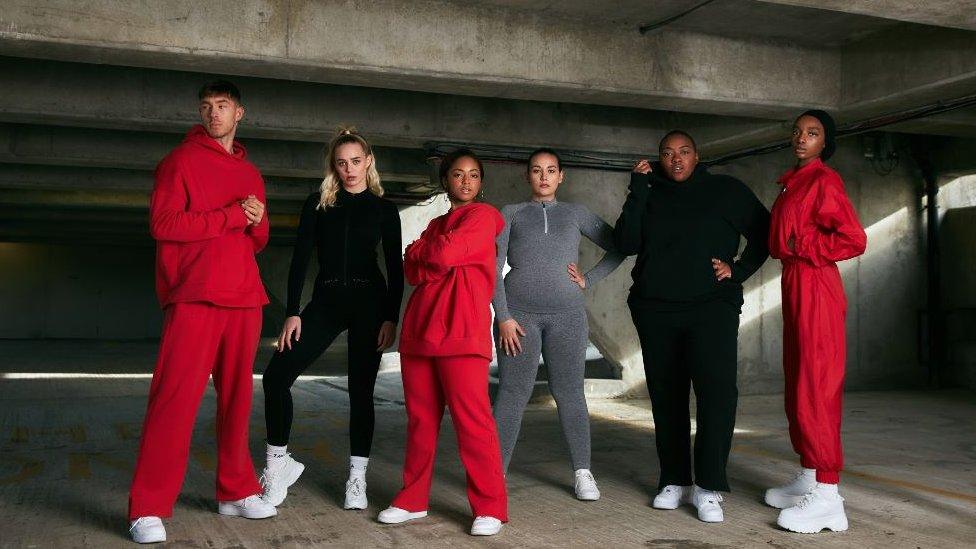
Grace set up TALA just before she did her university finals
"I decided about a year and a half ago that I wanted to speak more about my mental health, whether it was on the internet or to friends and family," she says.
"I realised that as much as I was a huge advocate for talking about mental health and removing the stigma, I actually just didn't apply that to myself."
She says the nature of being a fairly new business owner means there's always something to do, but you can't let it get in the way of your wellbeing.
Grace says next year she will continue as director of her companies, but says she will be working less too.
"I feel like I'm going into 2020 stronger than ever, concentrating on the things I love such as directing the strategy, vision and creative of the business, then being able to delegate other parts."


Follow Newsbeat on Instagram, external, Facebook, external, Twitter, external and YouTube, external.
Listen to Newsbeat live at 12:45 and 17:45 weekdays - or listen back here.
- Published26 November 2018
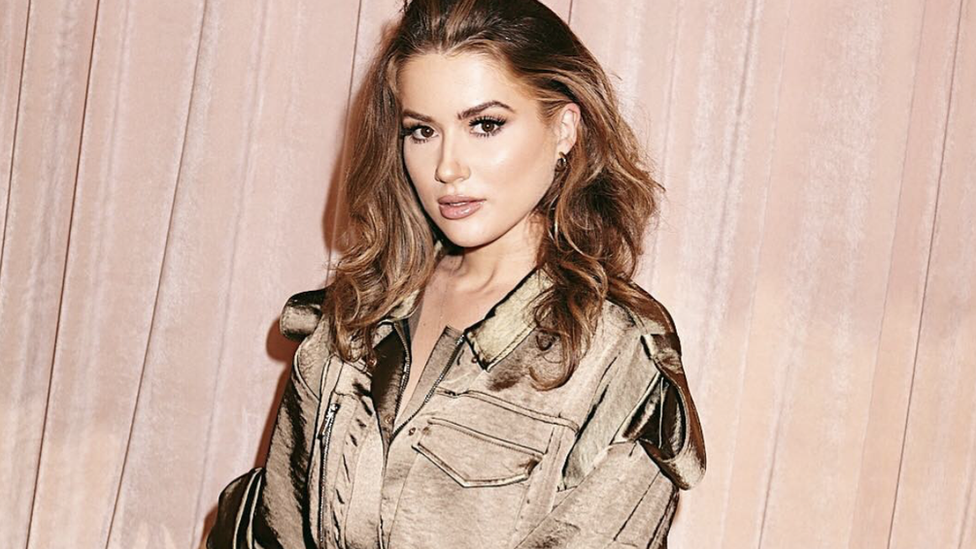
- Published31 July 2018
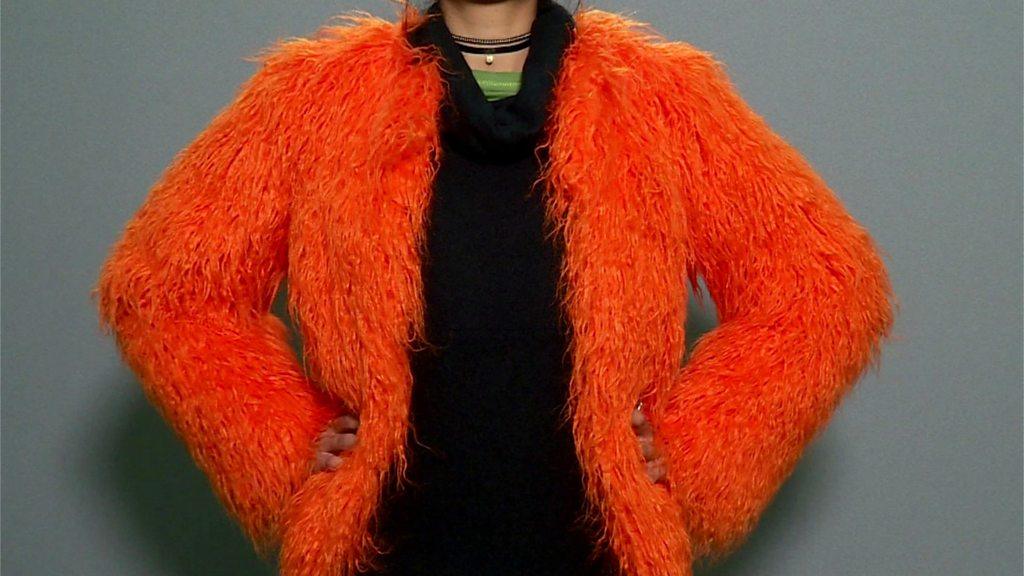
- Published8 August 2019
